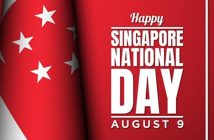In just four years, the Australian Security Medals Foundation Inc. (ASMF) has grown from an idea around a dinner table to an industry institution recognising bravery and contribution to security.
With this year’s medals being presented during a sold-out black-tie charity dinner at the Sydney Opera House, ASMF Chairman, Steve Jackson, said: “Not only is it a huge honour to recognise individuals for their bravery and contribution, to be able to do so at such an iconic venue speaks volumes for how far we have come in such a short space of time.”
Five Australian Security Medals for Valour (ASMV) were awarded this year to:
- Joe Bakhos for negotiating with a man who was holding a machete to a boy’s throat and threatening to kill him unless his demands to see his family were met.
- Chris Twal for intervening at personal risk to stop a man who had punched a 62-year-old man in a shopping centre.
- Mahmoud (Chris) Nemra for protecting a group of eight- to 10-year-old boys from a gang of 30 youths who were threatening them, by putting himself between the boys and the gang.
- Ross Chapman for breaking up a fight in which he was hit, headbutted and threatened with being shot.
- Jovan Jovanov for intervening in the attack of an elderly man by another man and dog.
 “The ASMV is awarded to recognise security operatives for an outstanding act or acts of valour; an action or actions demonstrating valour, courage and decisiveness above and beyond the call of duty,” said ASMF patron, MP Philip Ruddock.
“The ASMV is awarded to recognise security operatives for an outstanding act or acts of valour; an action or actions demonstrating valour, courage and decisiveness above and beyond the call of duty,” said ASMF patron, MP Philip Ruddock.
Two Australian Security Medals (ASMs) were also awarded to Julian Talbot and Bill Forbes.
“The ASM is awarded to recognise the outstanding career and character of the security professional receiving it,” said Ruddock. “ASM recipients have demonstrated a consistent, high-level contribution to the wider community, sometimes through innovative non-core business activities and projects, or through extraordinary performance in their professional role. This award is about more than how a person runs their business or operates in an organisation, but emphasises what they do above and beyond their day-to-day responsibilities.”
Senior corporate security managers form the judging panel for the Medals.
“This means that the nominations are carefully considered by major buyers of security and peers to fellow security managers,” said Jackson. “The Panel not only discusses – at length – the merits of each case but follow up where necessary with further investigation and checking references. The final stage of that process is to submit the finalists to the Patron, not so much for approval but a final proofing, if you like.”
Not every nomination is successful, but is nonetheless worthy of mention, in which case a Certificate of Meritorious Conduct is sent to the person’s employer for presentation to the individual. Two such certificates were sent to: Ibrahim Moustapha from SecureCorp, and Nemani Rainibogi from Southern Cross Protection.
Another step forward this year was the introduction of the Australian Security Medals Foundation and St John Ambulance Save a Life Award.
“Hundreds of lives are saved each year by the quick thinking and training of security officers, in recognition of which, the Australian Security Medals Foundation partnered with St John Ambulance to create a Save a Life Award, presented to security personnel responsible for saving lives through the rendering of first aid,” said Jackson.
On the night, St John Ambulance Chancellor, Mark Compton, presented the inaugural Save a Life Awards along with a First Aid Kit to Damien Stewart and Adriano Villella.
Funds raised from the night will go to this year’s nominated charity, beyondblue.
In the past year, the ASMF launched the partnership between beyondblue and the ASMF to promote the beyondblue National Workplace Program (NWP) in the security industry.
Kate Carnell, beyondblue CEO, said common mental health problems, such as depression and anxiety, can lead to increased absenteeism, high staff turnover and lost productivity.
“Male-dominated industries such as the security industry are particularly at risk because men are less likely than women to take action if they’re having a rough time,” said Carnell.
“Security staff are often the first responders in emergency situations which may be distressing and if the distress is not addressed, it may put people at risk of developing mental health problems.
“The nature of the work often means security staff have little control over the demands of their work environment which is a high risk factor for job stress.”
Subsidised NWP workshops are available to male-dominated workplaces through funding provided by the Federal Department of Health and Ageing’s ‘Taking Action to Tackle Suicide’ strategy. Funding is capped and available till end June 2014. (To find out more, call 1300 134 644 or visit www.inspiringsecurity.com
In addition to support for beyondblue, the ASMF also operates a fund to provide assistance to the families of security operatives killed in the line of duty.
“The ASMF is very much about changing the perception of security by sharing stories about its heroes and leaders, doing good within the wider community, and supporting those that need help within its own community,” says Jackson.
“Security is an integral part of business and society, and the Foundation is currently formulating plans to raise further awareness about the work in the security domain, which contributes to the security and wellbeing of millions of Australians.”
To find out more about the ASMF, please visit www.inspiringsecurity.com





